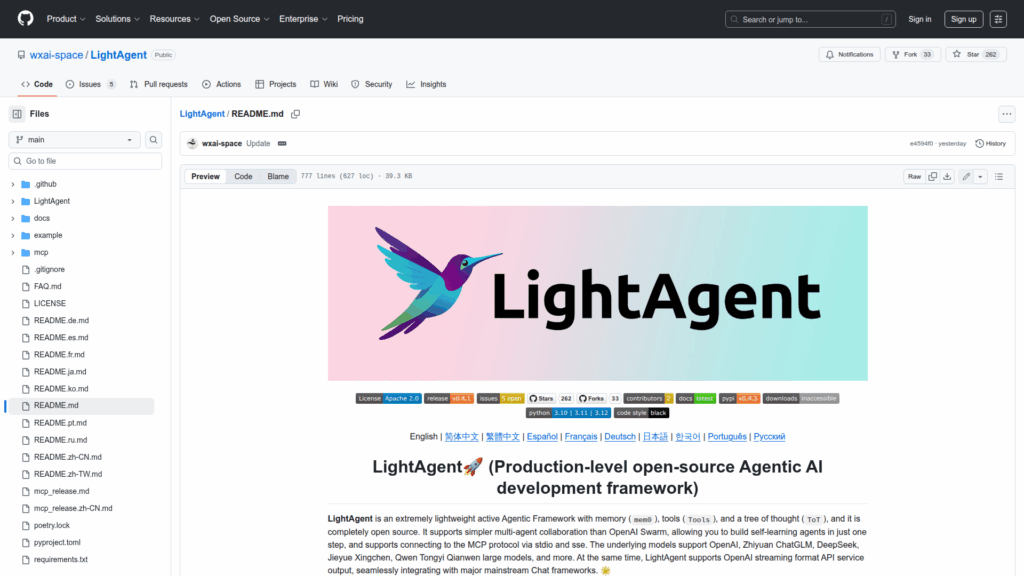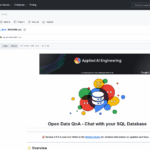LightAgent
Basic Information
LightAgent is an open source, production-oriented agent development framework designed to let developers build lightweight, autonomous AI agents with memory, tool integration, and structured reasoning. It provides a compact Python implementation that supports detachable memory modules such as mem0, an adaptive tools mechanism, a Tree of Thought planning module, and a simple multi-agent collaboration layer called LightSwarm. The project targets integration with many large models and protocols, including OpenAI, ChatGLM, DeepSeek, Qwen series, and MCP via stdio and SSE. It also supports OpenAI-style streaming outputs for seamless use with chat frameworks. The repository includes examples, quick start instructions, and a tool generator for automatically creating Python tools from API descriptions. The emphasis is on minimal dependencies, fast deployment, and extensibility for building self-learning, tool-enabled agents.








